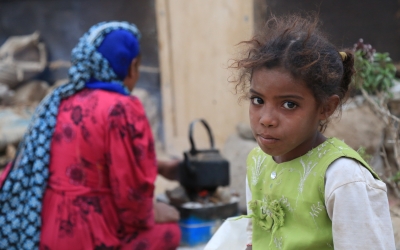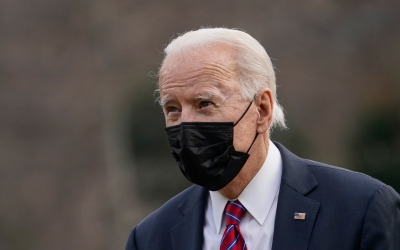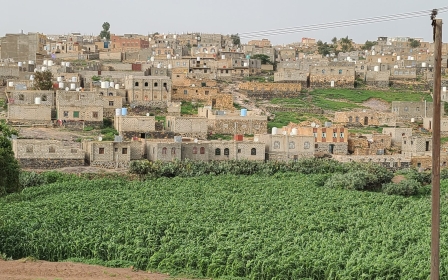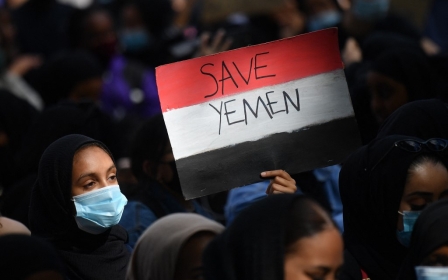Yemen war: Top Houthi negotiator says 'no use' in meeting new UN envoy now
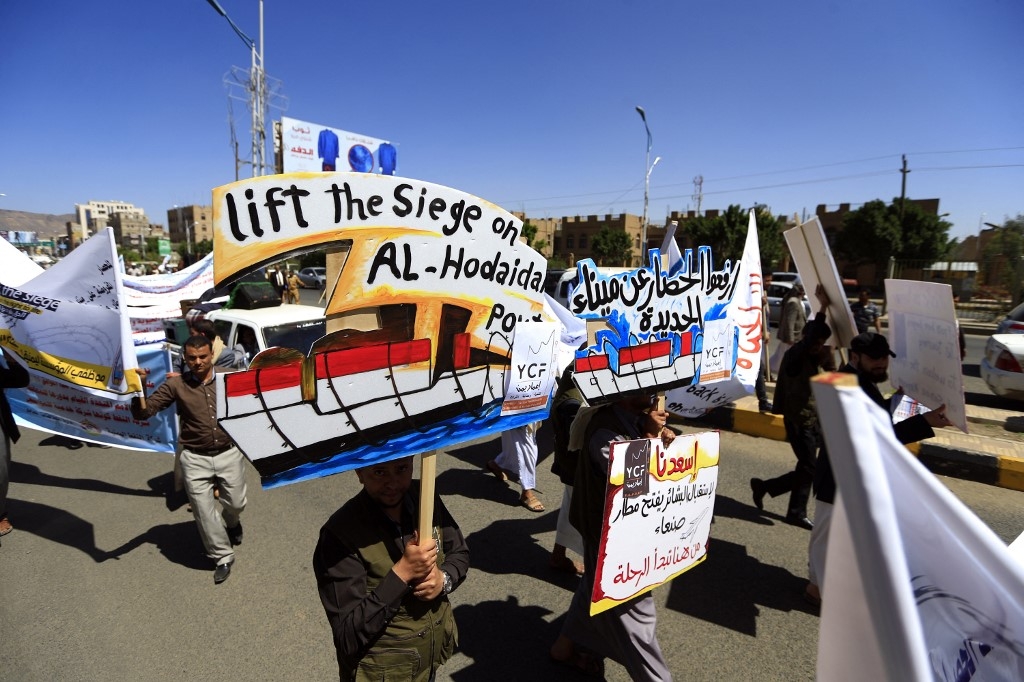
The Houthi movement's chief negotiator has rejected prospective talks with the United Nations' new special envoy for Yemen, demanding basic conditions be met before any potential ceasefire negotiations begin.
Mohammed Abdulsalam said the movement would not meet with Swedish diplomat Hans Grundberg, who was appointed as the new UN envoy on Friday, until the sea and air restrictions imposed by the Saudi-led coalition on Houthi-held areas are lifted.
New MEE newsletter: Jerusalem Dispatch
Sign up to get the latest insights and analysis on Israel-Palestine, alongside Turkey Unpacked and other MEE newsletters
"There is no use in having any dialogue before airports and ports are opened as a priority and humanitarian necessity," Mohammed Abdulsalam, who is based in Oman, said in a post to Twitter in Arabic on Sunday.
When contacted by Reuters, Abdulsalam said in a text message a meeting would be pointless as Grundberg "has nothing in his hands" and that there was no progress following last month's visit to Riyadh by the US envoy for Yemen, Tim Lenderking.
Lenderking's trip to the region came as ground battles spread beyond Yemen's gas-rich Marib, the government's last northern stronghold that the Houthis are trying to seize.
Calls to lift the blockade
The Houthi movement has long demanded the Saudi-led coalition lift its blockade on its territory before a ceasefire agreement can be negotiated.
US Democrats have supported the call. In April at least 80 lawmakers, including Representative Adam Schiff, the House Intelligence Committee chair, sent a letter to President Joe Biden calling on the White House to push efforts to lift the Saudi restrictions.
The Saudi-led coalition introduced the air and naval blockade in 2015, it said to prevent the Houthis from smuggling weapons into Yemen.
Riyadh believes regional foe Iran has supplied the rebels with weapons to fight the coalition, which Tehran has denied.
But the UN and human rights groups have said that the blockade has restricted the flow of aid and goods coming into Yemen, putting millions at risk of famine.
The conflict, widely seen in the region as a proxy war between Saudi Arabia and Iran, has killed tens of thousands of people and pushed Yemen to the brink of famine.
The coalition intervened in Yemen in March 2015 after the Houthis ousted the Saudi-backed government from the capital Sanaa, but the war has been in military stalemate for years with the group controlling most big urban centres. The Houthis say they are fighting a corrupt system and foreign aggression.
Middle East Eye delivers independent and unrivalled coverage and analysis of the Middle East, North Africa and beyond. To learn more about republishing this content and the associated fees, please fill out this form. More about MEE can be found here.


